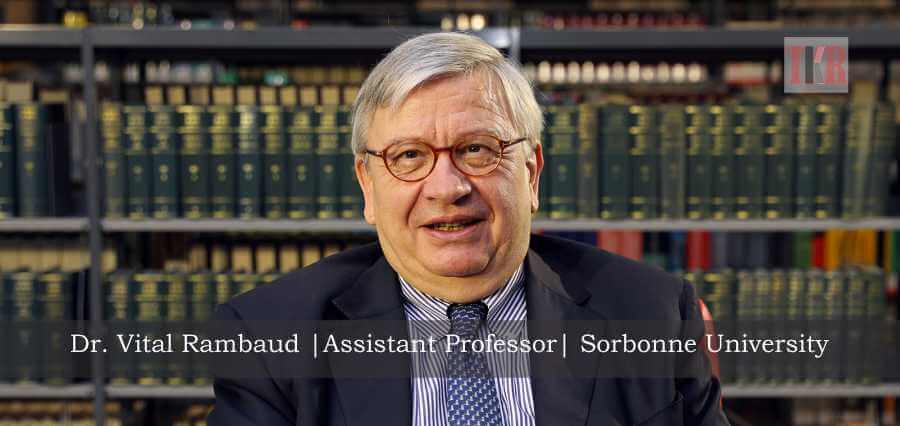As demonstrated by the profound emotion that the recent fire in Notre-Dame de Paris evoked all around the world, humans cannot only settle for material comfort and technological advances. The latter are certainly necessary and modern technology as well as artificial intelligence will probably facilitate the rapid reconstruction of the damaged cathedral. But everybody also needs beauty and spirituality. For individuals, as well as for nations, it is essential to look not only forward or at the present but also backward, to ask their roots, to know the tangible and intangible heritage that the previous generations bequeathed to them. As Sheikh Zayed said, “He who does not have a past, will not have a present or a future”. That is what Humanities make possible. In the occidental scholar tradition, Humanities consisted in studying Greek and Latin authors of antiquity. Now, they consist in studying History, History of art, Literature, Philosophy. As suggested by their appellation, they put humankind at the heart of their lesson. However, some people think they are outdated and inadequate to meet the needs of the contemporary world. Quite the contrary, they are now more than ever necessary in our societies which surrender to the mirage of technicality, are living in permanent zapping, only in the present moment or in these solipsistic and repeated selfies.
Because they are an invitation to ponder the history of major civilizations, the masterpieces of art and literature and great philosophical texts, Humanities give a general culture broader than any specialized skills of technological modern education. Specialists are needed in many sectors. For example, in medicine. But specialists are never better than when they have a broad general knowledge and when they are, consequently, not captive of their specialization. To speak further about medicine, some people find that it became too technical and that the practitioners are sometimes more attentive to their screens or to the analysis results than to the patient himself. That is why the introduction of Humanities in the medical studies is now discussed by some countries. Actually, there is no incompatibility between Humanities and modern technology. They could be complementary. Proof of this is the development of Digital Humanities. These consist in using the digital innovations in the different fields of Humanities. This represents a comprehensive renewal for research and offers many practical applications in the sectors of publishing, journalism or archives management. In the 16th century, Humanities participated in the Renaissance. Digital Humanities will perhaps participate tomorrow in a new Renaissance.
In any event, they will certainly create new job opportunities for students in History, History of art, Literature or Philosophy in broader fields than people generally believe. Indeed, career opportunities exist not only in teaching but also in journalism, communication, media, publishing, public service, administration, tourism, heritage institutes, cultural relations… Because Humanities develop skills of analysis, synthesis and clear expression, companies are ready to welcome these students. Even, for several years now, some prestigious companies launched with Sorbonne University, in Paris, the “Opération Phénix” — from the name of the mythological bird which is reborn from its own ashes — to facilitate the integration of graduate students in Humanities in the business world.
Furthermore, the knowledge of great men of the past, great artists, great authors, great philosophers also gives us the ability to rise above events and take distance from them. Humanities help to assess appropriately and to not let ourselves be fooled by the “hypermediatization” of the contemporary society. In this age of social media, critical thinking, which is developed by Humanities through the examination and discussion of the works and texts, is probably the best way to escape fake news. Humanities bring freedom. They also bring freedom when, whatever the external circumstances are, they allow to seek refuge in the contemplation of art pieces, the recitation of poetry, the meditation on a philosophical work or the recollection of historical events. Montesquieu, the French eighteenth century writer, used to tell that he never had any sorrow that would not have been appeased by one hour of reading.
Humanities make their followers not only free but also tolerant. They highlight the terrible impact of all kinds of madness and crime to which intolerance leads. While intolerance is, as now, raging around the world, it is not an useless lesson. Because they enable us to discover and appreciate what is different, Humanities also teach to be open to others and to accept other cultures and civilizations. That is not outdated, especially when 2019 is the year of the Tolerance in the UAE.
About the Author
Dr Vital Rambaud is Assistant Professor at Sorbonne University in Paris and State Doctor in French Literature. Since 2011, he is the Head of Department of French Studies at Sorbonne University Abu Dhabi. His research interests include French Literature of nineteenth and Twentieth centuries.









